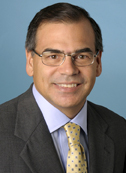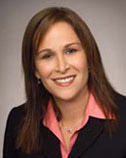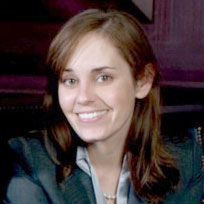A View Upon Leaving the Bench with Raoul G. Cantero
By Caryn L. Bellus

As Justice Cantero prepared to complete his last few weeks on the Florida Supreme Court, I had the privilege and the opportunity to speak with him about his experience on the bench. I wanted to get his parting advice for practicing appellate attorneys, and for those of you who may be thinking about applying for a seat on the court.
Some advice for lawyers who appear before the Supreme Court.
- Be brief.
Most of us do not realize the immense amount of paperwork and reading that the Justices have to do. According to his calculations, the Justices have to read on average about 3000 pages of briefs per week, before taking into account the record and oral argument summaries prepared by the law clerks. Thus, his first recommendation to appellate attorneys: be concise in your briefs and get right to the point. A short brief is “refreshing.” The court looks at it as an “asset” for a lawyer to be able to write a brief that does not use the full page limit permitted by the appellate rules. Along those lines, Justice Cantero finds that many lawyers fail to pay attention to the importance of drafting a really strong statement of the case and facts, and that many lawyers include matters which are irrelevant to the issues on appeal. Thus, he sees the statement of the case and facts as a key place where lawyers can cut the length of their brief. - Prepare for oral argument.
Justice Cantero also could not stress enough the importance of pre paring for oral argument and trying to anticipate the difficult questions the court may ask. Although the law may not be on your side, you must not be caught off guard. Rather, take the time beforehand to think about how to respond to the tough questions. - Expect jurisdictional questions.
At oral argument, be prepared to discuss jurisdiction. Too often, lawyers make the mistake of thinking that the court has already decided the jurisdictional question prior to oral argument, and are surprised when these questions are posed. Frequently, the court carries the jurisdictional issue with the brief and often discharges the case because of a lack of jurisdiction.Even on certified conflict questions, be pre pared to discuss why conflict exists. Just because the district court certi fies the question does not mean that a conflict actually exists. In too many cases, lawyers argue that conflict exists when it really does not. Justice Cantero estimates that in less than 1 in 10 cases presented to the court, conflict actually exists. This brings him to another recommendation: be sure to advise your clients of the small chance that the court will find it has jurisdiction based upon a conflict. Do not waste the client’s money with the expense of preparing substantive briefs and having oral argument. If no conflict exists, eventually the court will notice and discharge the case. - Be candid.
Point out the facts or cases which may exist against your position. This does not hurt your case — the court will find the bad things anyway. If anything, your honesty will improve your position with the court. In a similar vein, Justice Cantero feels that lawyers need to be more candid with what they want the court to do and how it fits into the jurisprudence of Florida and the United States. If you are asking the court to follow a minority position, explain that it is the minority position and why it is necessary for the court to adopt it.
A few surprises…
Justice Cantero shared a few of the things which surprised him once he became a Justice. His biggest sur prise after getting on the court was how much time the Justices spend on things other than evaluating cases and preparing for oral argument. A significant amount of time is spent traveling and speaking with various groups including lawyer’s groups, local bars, judges, and schools from high schools to law schools. When he joined the court, his personal philosophy was that he would speak to anyone who asked, but could not spend more than one week a month away from the court. During his tenure on the court, he has spent 3-5 days a month traveling and speaking to these groups. On top of that, the Justices spend a great amount of time on bar committees, judicial committees, court administration committees, and handling behind the scenes administrative matters.
With regard to the cases presented to the court, Justice Cantero was most surprised about the number of lawyer disciplinary cases the court sees. Many of these cases are discussed at the court’s weekly Wednesday meeting and addressed without oral argument. The vast majority of these actions are decided by unpublished orders.
Taking this all into account, it was a great surprise to him how little time the court has to write opinions. One week per month the Court holds oral arguments, and about one half of the prior week is spent preparing. Every Wednesday, the court holds a conference on cases which will be decided without oral argument and administrative issues. It takes the Justices about half a day to prepare for that conference. Then, there are the 3-5 days per month spent traveling and speaking. During his tenure on the court, Justice Cantero has spent more time traveling than he “ever did as a lawyer.”
Additionally, a lot of time is spent reading drafts of opinions written by other Justices, and reviewing jurisdictional briefs and deciding what cases to take.
The best things about being a Florida Supreme Court Justice?
Working on some of the most important cases in the state and being in the middle of issues that will affect a lot of people. Also, having the opportunity to speak with students of all ages and young lawyers. Justice Cantero has especially enjoyed speaking with high school students about the work of the court and having the ability to develop their inter est in the legal and judicial system.
Getting to know the system behind the scenes…
Justice Cantero has developed a lot of respect for the Office of The State Court Administrator, an entity which exists without much thanks or notice from lawyers. This office “keeps the judiciary going” and ensures that the Court fulfills its responsibilities and keeps running.
Anything he would change?
Justice Cantero suggests that it may be necessary to revisit the concept of having all death penalty cases reviewed in the Supreme Court. He was surprised by the amount of time the court spends on death penalty cases. About half of the court’s oral argument calendar is dedicated to such cases, during which each side gets 30 minutes to present their case. Plus, each party gets a 100 page limit per brief and most cases address as many as 15-20 issues and use the full page limit. Because of the amount of time spent on these cases, the court has that much less time to spend on other cases. Without offering an opinion as to which would be best, he sees three options: 1. Have the death penalty cases go to the DCAs like other cases; 2. Designate a separate Supreme Court to handle these cases similar to what is done in Texas; or 3. Do away with the death penalty.
Perhaps doing one of these things would result in the court being able to take more cases under its discretionary review power. Justice Cantero estimates that when he joined the court six years ago, 90% of the cases in which a DCA certified a question were accepted for review by the Supreme Court. Now, he estimates that less than 50% of the certified question cases are accepted for review.
Justice Cantero also thinks that appellate judges should be paid more than is permitted on the current pay schedule. This keeps qualified people from applying. He also thinks the time is coming where it will be decided that the Justices do not have to live in Tallahassee. Unfortunately, the location of the court keeps many qualified people who live south of Orlando from applying to the Court because the distances are so great it is dificult to get home often.
As to qualifications for those of you who are thinking of some day applying to be a Justice?
Write well, have an intellect for the law, enjoy reading, get along well with others, and be exceptionally able to listen to other people’s opinions. Be able to state your opinion in a reasonable and intellectual way, but be able to loose arguments without taking it personally. At the Supreme Court level, collegiality is paramount because the judges sit en banc one week each month and have weekly court conferences.
You must also have humility both personally and institutionally. A friend once remarked to him “being a judge magnifies your personality.” So, if you were humble before, you will be a very humble Justice, but if you were arrogant before, you will be a very arrogant Justice. Thus, it is especially important that while you take your work seriously, re main humble so that you do not get carried away by the power of the court.
You must also have a sense of humor. While the cases and the work are serious, if you lose your sense of humor or take yourself too seriously, you will think more of yourself than you should.
Justice Cantero is most looking forward to returning to the camaraderie of his fellow lawyer friends, including those in our Section. As a judge and especially as a Supreme Court Justice, you become very isolated. He cannot wait to get involved again with lawyers, our Section, and various community activities.
Justice Cantero will be joining the firm of White & Case. While his retirement from the court is a loss to the judiciary, the judiciary’s loss is our Section’s gain as Justice Cantero is returning to the Section as Vice Chair, the position he held when he ascended to the bench. We welcome you back, Justice Cantero, and look forward to getting to spend more time with you again!

Caryn L. Bellus is a shareholder at the law firm of Kubicki Draper where she practices in the areas of civil appeals, civil litigation support, and insurance coverage. She is board certified by the Florida Bar in Appellate Practice, and she is a Past Chair of the Appellate Practice Section of the Florida Bar and a member of the Section’s Executive Council. She can be reached at cb@kubickidraper.com.



